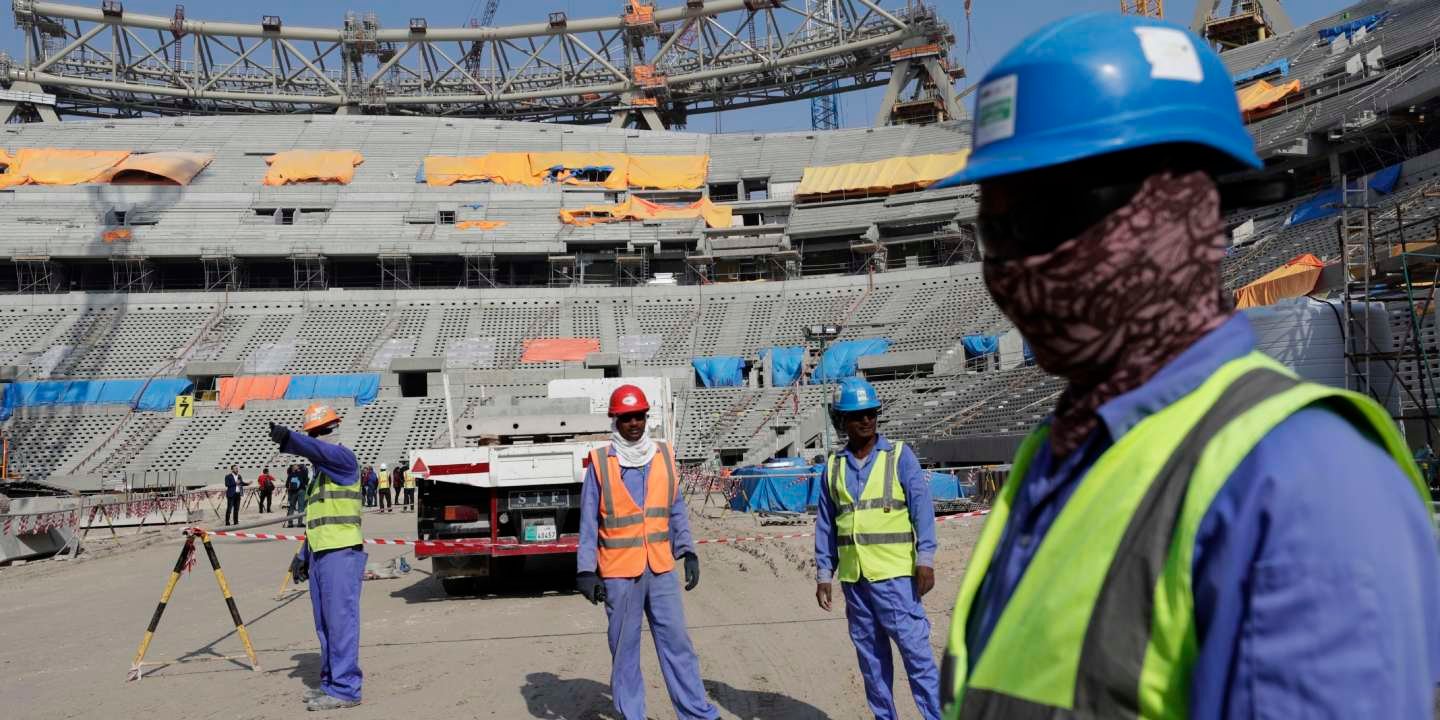- Hassan Al-Thawadi, the Qatar 2022 World Cup chief confessed to this
- Qatar was awarded the right to host the FIFA World Cup in 2022
- It had been bidding since 2010
Hassan Al-Thawadi, the Qatar 2022 World Cup chief asserts that since FIFA allowed them to hold the Qatar World Cup, at least 400 migrant labourers have passed on.
Qatar was awarded the right to host the FIFA World Cup in 2022, 12 years after making the first bid in 2010. Since that time, the nation has had to handle controversy after controversy.
The treatment of migrant workers, who toiled arduously to build the infrastructure required to host such a large tournament, has generated some of the fiercest controversies.
In a report by The in February 2021, since 2010, more than 6,500 migrant workers have died while working on Qatar’s infrastructure. The Qatar World Cup chief drastically exaggerated the death toll, claiming that less than 500 people had perished.
Al-Thawadi, in an interview with Piers Morgan on TalkSport, admitted that one death is too many. In another report by The Guardian, statistics show that 6,500 migrant workers lost their lives in Qatar between 2011 and 2020.

Qatar Migrant workrers. Photo by AP Photo/Hassan Ammar
Of these, the highest number of casualties recorded are Indians (2,711), followed by Nepal (1,641) and Bangladesh (1,018). Pakistan lost 824 workers, while Sri Lanka lost 557 citizens working as migrant workers in Qatar.
This dark history shadows the myriad job opportunities this gulf country offers hundreds of thousands across the world.
Al-Thawadi also responded to complaints on how the LGBTQ+ community has been treated, stating that everyone of any sexual orientation can feel comfortable in Qatar.
Regarding how LGBTQ+ individuals would be treated during the FIFA World Cup in 2022, much has been said. With threats of sanctions against the rebels, FIFA dissuaded many European nations from donning the OneLove armband, including England, Wales, and Germany.
Al-Thawadi asserted that the armband dispute only affected FIFA and the European countries, and he added that everyone could travel to and remain in his country without fear.
Al-Thawadi commented on FIFA’s threat to issue yellow cards to supporters of the OneLove movement, saying it’s a decision FIFA made between them and the European nations, and it turned into a stand-off.
He reiterates that everyone is safe in Qatar, even gay people, contrary to popular belief in town.

One Love Arm Band in Qatar. Photo by SkySports
“Everyone can feel protected in Qatar. Without a doubt…I believe that everyone can live safely in Qatar,” Al-Thawadi quipped.
The head of the Qatar World Cup also addressed the hotly discussed subject of public displays of affection (PDA). Regardless of sexual orientation or social standing, Al-Thawadi acknowledged that Qatar had a very conservative culture and did not permit any PDA.
He asserted that while hand-holding was acceptable for everyone, including members of the LGBTQ+ community, public intimacy was not. Al-Thawadi remarked the following in reference to the LGBTQ+ community’s outward displays of affection in Qatar:
Public shows of affection are typically frowned upon in Qatar.
“Public displays of affection are generally not part of our culture. Public display of affection is not part of our culture, regardless of who you are or your sexual identification,” he told Piers.
















You must be logged in to post a comment Login